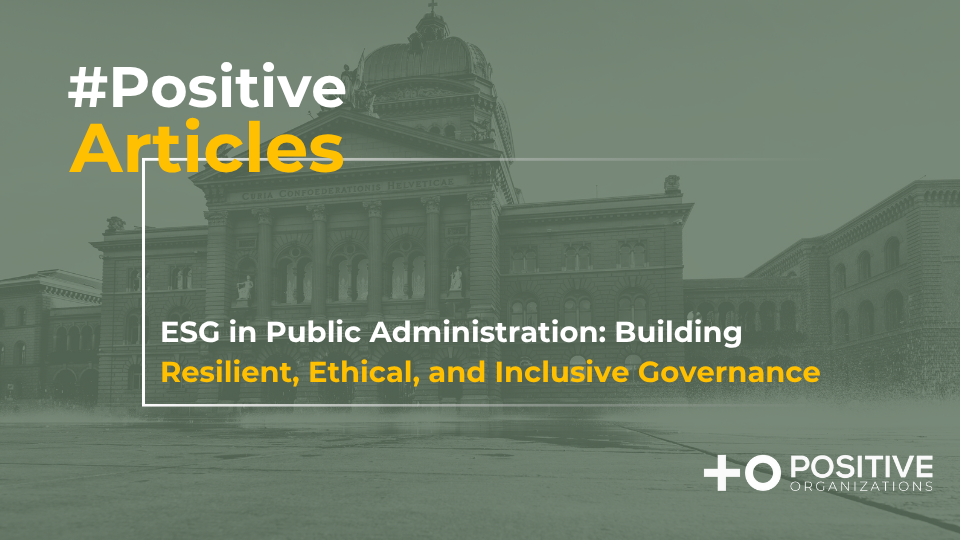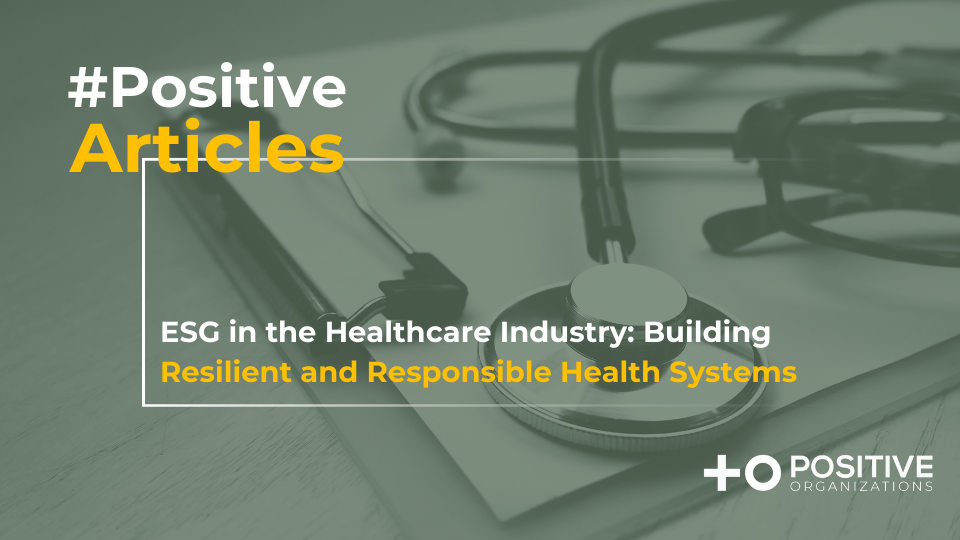News & Publications
.png)

As the world faces urgent environmental challenges, companies globally are under growing pressure to embrace sustainable practices. This shift isn’t just about reducing carbon footprints; it’s about making a fair and just transition—ensuring that the move to sustainability protects both people and the planet. The United Nations Global Compact’s Just Transition initiative underscores this, emphasizing the need for inclusive transitions that protect workers, communities, and future generations. Together, ecological and just transitions enable companies to achieve sustainable growth, foster innovation, and bolster long-term resilience.
Governments worldwide are tightening regulations to combat environmental issues. These policies include carbon taxes, emissions standards, and mandatory sustainability reporting. Companies that fail to comply face financial penalties, reputational risks, and potential market exclusion. By adopting a proactive approach, businesses can stay ahead of evolving regulations and turn compliance into a competitive advantage.
Today’s consumers are increasingly eco-conscious, expecting businesses to align with their values. A Nielsen survey found that 73% (https://www.nielsen.com/insights/2018/what-sustainability-means-today/#:~:text=When%20it%20comes%20to%20action,their%20impact%20on%20the%20environment.) of consumers are willing to adjust their habits to reduce their environmental impact. Companies that prioritize sustainability foster trust and loyalty, strengthening their brand and attracting environmentally aware customers.
The rise of ESG (Environmental, Social, and Governance) investing highlights a growing preference for sustainable investments. Investors prioritize businesses that demonstrate resilience to environmental risks and commit to long-term growth. Integrating ESG principles can attract investment and solidify a company's position as a forward-thinking, responsible leader.
Sustainability practices often lead to cost reductions in energy, water, and waste management. Companies investing in renewable energy and resource-efficient technologies see improved profitability over time. The savings from sustainable operations contribute directly to the bottom line, offering both environmental and economic benefits.
Strategies for a Just and Sustainable Transition
Achieving a sustainable and just transition involves a multi-faceted approach. Here are key strategies that can help businesses succeed:
- Establish an internal process
A key strategy for a just transition is to establish a structured internal process for setting priorities and monitoring KPIs. By organizing dedicated teams to define goals and track progress, companies can align their transition efforts with sustainability and equity principles. This governance approach ensures transparency, accountability, and a balanced focus on economic, social, and environmental outcomes, fostering a fair transition for all stakeholders.
- Adopt Circular Economy Practices:
A circular economy reduces reliance on raw materials and minimizes waste by emphasizing reuse, recycling, and product longevity. Companies adopting this model can develop products with longer life cycles, use recycled materials, and implement take-back programs for reusing products. This approach not only benefits the environment but also creates value through resource efficiency. - Energy Efficiency and Renewable Energy:
Switching to renewable energy sources like solar, wind, and hydropower significantly cuts emissions. Companies can further reduce energy use by investing in efficient equipment, upgrading smart technologies, and retrofitting facilities. This reduces their carbon footprint and contributes to global sustainability goals. - Sustainable Supply Chain Management:
A company’s commitment to sustainability must extend to its supply chain. By engaging with suppliers who adhere to environmental and ethical standards, companies can reduce emissions and environmental impact across their entire value chain. Sustainable sourcing, optimized logistics, and ethical partnerships build a more resilient supply network and boost brand credibility. - Green Innovation and Technology:
Innovation drives sustainable growth. Investment in R&D for eco-friendly materials, digital tools, and resource-efficient technologies allows companies to improve efficiency and reduce environmental impacts. Utilizing AI, IoT, and automation to monitor and optimize resources enables companies to achieve smarter, more sustainable operations. - Employee Engagement and Corporate Culture:
Embedding sustainability in corporate culture is essential for achieving a just transition. Training employees and engaging them in green initiatives fosters organization-wide commitment. When employees understand the importance of their role in a sustainable strategy, they contribute to meaningful change and advocate for sustainable practices. - Transparent Reporting and Communication:
Clear reporting and transparent communication are critical to building stakeholder trust. Standards like the Global Reporting Initiative (GRI) and the European Sustainability Reporting Standards (ESRS) enable companies to showcase their progress, set benchmarks, and improve accountability. Honest reporting on sustainability efforts resonates with consumers and stakeholders and reinforces the company’s commitment to sustainability.
The Importance of a Just Transition: Protecting People and Communities
The ecological transition must be inclusive, addressing the needs of workers and communities that could be affected by changes in traditional operations. As outlined in the UN’s Just Transition principles, businesses have a responsibility to protect workers' rights (offering fair wages, job security, and support during shifts to new roles or greener technologies), support communities (engaging with local communities, especially those impacted by traditional resource-intensive industries, ensures that no one is left behind), and invest in skills and education (preparing workers with the skills needed for green jobs through reskilling and training programs allows companies to build an agile, knowledgeable workforce)
Challenges of Ecological and Just Transition
Transitioning toward sustainability comes with challenges that companies need to prepare for:
- Initial Investment Costs: Sustainable practices often require upfront investment, whether in new technologies, infrastructure, or employee training. While the costs are recouped through efficiency gains, initial financial constraints can be a hurdle.
- Adjusting Business Models: Moving from a linear (take-make-dispose) to a circular model requires changes in design, production, and supply chain management, which may require time and expertise.
- Sector-Specific Difficulties: Certain industries, such as manufacturing and energy, face unique challenges in reducing their environmental impact. Creative solutions and innovation are key for these sectors to meet sustainability goals without sacrificing profitability.
Benefits of a Sustainable and Just Transition
Despite these challenges, the rewards for companies are substantial and long-lasting:
Companies that prioritize sustainable and just practices gain customer trust, boost brand loyalty, and increase market share. Today’s consumers are more likely to support brands that align with their values, creating a powerful competitive advantage.
Sustainable companies often outperform their less eco-conscious counterparts due to cost savings, new revenue opportunities, and increased resilience. This enhanced financial performance benefits shareholders and supports long-term business growth.
Climate change, resource scarcity, and regulatory shifts are risks companies must prepare for. By embedding sustainability into operations, companies can navigate future disruptions more effectively, ensuring resilience amid an evolving global landscape.
Employees, particularly younger generations, want to work for companies that share their values. Organizations leading the way in sustainable and just practices attract top talent and cultivate a committed, motivated workforce.
A sustainable and just transition is no longer optional—it’s essential for businesses seeking to thrive in the modern world. This transition demands a holistic shift that considers not only environmental impact but also the fair treatment of workers and communities. While challenging, the long-term benefits—operational savings, customer loyalty, resilience, and talent attraction—make this transition a worthwhile investment.
At Positive Organizations, we understand the complexities of making a sustainable and just transition, especially in a landscape where environmental and social expectations are rising quickly. Our team of ESG experts is here to help your company navigate this transition, not only by reducing environmental impacts but by making it fair, inclusive, and beneficial to all stakeholders. Here’s how we can support your journey:
Positive Organizations offers customized roadmaps that outline each phase of your company’s ecological and just transition. We work closely with your team to assess current operations, identify specific challenges, and create a tailored action plan. This roadmap is designed to address both environmental impacts and social responsibilities, ensuring that your transition supports fair treatment of employees, suppliers, and local communities.
Moving to a circular economy model involves rethinking product design, material use, and waste reduction. Our team provides hands-on guidance in redesigning products and processes to prioritize longevity, reuse, and recycling. Whether it’s developing product take-back programs or sourcing sustainable materials, we help you implement circular economy practices that are both efficient and impactful.[Gd1]
Energy efficiency and a shift to renewable sources are critical to reducing emissions. Positive Organizations conducts energy audits and renewable transition assessments to find immediate energy savings and long-term renewable options that suit your industry and location. We assist with everything from selecting appropriate technologies to planning for renewable infrastructure, so your company can lower emissions while reducing energy costs.
We help you with the assessment of your company's and products' carbon footprint, taking into account emissions across the entire value chain to identify impactful reduction measures aligned with science-based targets within an established transition plan, based on international standards such as the GHG Protocol, SBTi, ISO 14064, and ISO 14067.
Sustainability doesn’t end within your company; it extends to your suppliers. Positive Organizations helps you evaluate and engage suppliers to align with environmental and ethical standards. We provide tools to help you assess supplier practices, implement sustainable sourcing, and set expectations for environmental and labor standards, all of which ensure that your company’s sustainability extends across its entire value chain.
A successful sustainable transition requires commitment from your team. We offer comprehensive training programs that engage employees at all levels, teaching them about sustainability goals and just transition principles. Through workshops, educational resources, and engagement initiatives, we help embed a culture of sustainability within your organization, empowering employees to contribute actively to the transition.
Positive Organizations supports companies in ensuring that their transition benefits not only the environment but also the communities they impact. We conduct community impact assessments to identify potential effects on local stakeholders, whether through changes in employment or environmental shifts. By engaging stakeholders in decision-making, we help your company foster positive relationships and ensure a fair, just transition for all.
Meeting reporting standards such as the Global Reporting Initiative (GRI) or European Sustainability Reporting Standards (ESRS) is critical for accountability. We assist in developing clear, compliant sustainability reports that communicate your progress honestly and transparently. Our support covers data collection, performance measurement, and guidance on meeting global standards, ensuring you can demonstrate progress effectively to stakeholders.
We also offer support in achieving ESG sustainability ratings and certifications, such as the CDP questionnaire, S&P Corporate Sustainability Assessment, Ecovadis, and BCORP certification. This process includes guidance through assessment procedures, taking into account recognized international standards to enhance companies' sustainability profile and ensure compliance with key ESG criteria.
Our company provides comprehensive third-party assurance support throughout the verification process, ensuring you meet all requirements for certification. We work closely with accredited verification bodies to facilitate accurate, efficient assessments and deliver fully assured documentation, enhancing the credibility and reliability of your certification outcomes. This commitment to thorough third-party oversight helps you confidently meet industry standards and strengthen trust with your stakeholders.
Transitioning can be resource-intensive, and we understand the financial implications involved. Our team helps identify funding opportunities, grants, and incentives available at the EU and national levels that can offset the costs of sustainable investments. By connecting you with these resources, we ensure your transition is financially manageable and aligned with broader economic incentives.[Gd2]
Sustainability is a journey, and we’re committed to supporting your company’s ongoing efforts. Positive Organizations offers long-term monitoring services that track progress, provide regular evaluations, and suggest improvements over time. This approach ensures that your sustainable practices remain relevant, adaptive, and compliant with evolving regulations.
With sustainability and just transition at the forefront of consumer and investor priorities, Positive Organizations helps you communicate your efforts effectively to stakeholders. We assist in crafting narratives, preparing reports, and positioning your sustainability practices as a market advantage. By showcasing your commitment to environmental and social values, we help you strengthen your brand reputation, attract customers, and appeal to socially conscious investors.
Start Your
Journey Today









.png)





